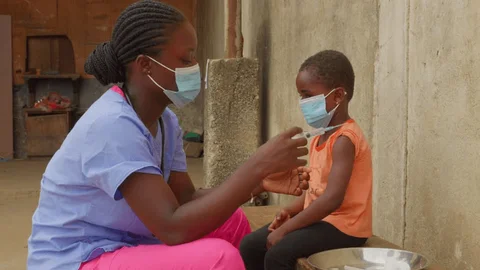HEALTH BLOGS BY FITBYNET
Why Malaria Vaccines Are Less Effective in Infants Under 5 Months
A look at has located that antibodies passed down from moms to their infants at some point of pregnancy may want to reduce the effectiveness of malaria vaccines in babies below five months old.
Antibodies are proteins produced with the aid of the immune system to help combat off infections. They recognize and bind to harmful invaders like viruses and micro organism, marking them for destruction.
Antibodies are unique to each pathogen, meaning they goal and neutralise unique germs the body has previously encountered.
The take a look at led a group of researchers from the Barcelona Institute for international fitness (ISGlobal) explains why the malaria vaccine works less effectively in very younger kids.
The research, carried out with seven African centres, was posted in Lancet Infectious diseases.
It indicates that kids younger than the cutting-edge global health employer (WHO) encouraged age for malaria vaccination may want to still enjoy the RTS,S and R21 vaccines, particularly in regions with low malaria transmission.
In those areas, mothers tend to have fewer malaria antibodies, probably enhancing the vaccine’s effectiveness.
Malaria vaccines RTS,S/AS01E and R21/Matrix-M were evolved to defend children in Africa from Plasmodium falciparum, the parasite answerable for malaria.
each vaccines are presently given to youngsters starting at five months of age.
“We realize that the RTS,S vaccine is less powerful in infants underneath 5 months, but the genuine reason for that is nonetheless being debated,” stated Carlota Dobano, who leads the Malaria Immunology organization at ISGlobal.
To discover this, Dobano’s crew studied blood samples from over 600 youngsters among the ages of 6 weeks to 17 months who participated in a clinical trial of the RTS,S vaccine.
They measured the presence of antibodies towards malaria before vaccination to peer how age and previous exposure to malaria affected the children’s responses to the vaccine.
Their analysis showed that during toddlers, excessive levels of antibodies exceeded from their moms at some point of pregnancy had been connected to weaker responses to the malaria vaccine. This interference became particularly important with maternal antibodies focused on a particular a part of the malaria parasite.
then again, babies who had low degrees or no maternal antibodies replied to the vaccine simply as well as older children.
The study confirms that at the same time as maternal antibodies assist shield newborns early in existence, they also can reduce the effectiveness of vaccines like RTS,S.
that is particularly true in regions with high malaria transmission, wherein moms bypass on more antibodies to their toddlers, leading to lower vaccine effectiveness.
however, in areas with lower malaria transmission, babies may also nevertheless advantage from getting vaccinated in advance than the contemporary tips recommend.
“This research highlights the significance of considering both timing and maternal antibody ranges to enhance vaccine effectiveness within the youngest toddlers,” said Gemma Moncunill, co-creator of the observe.

